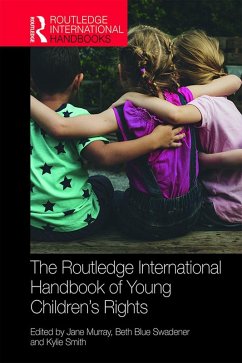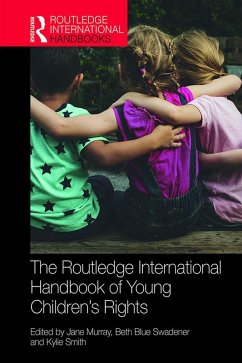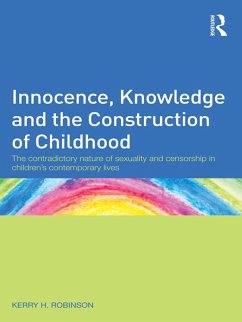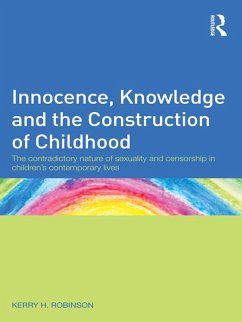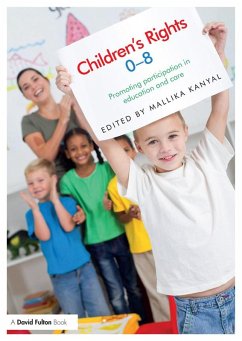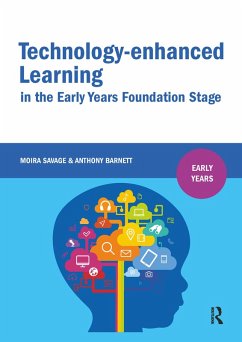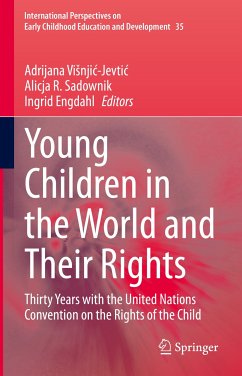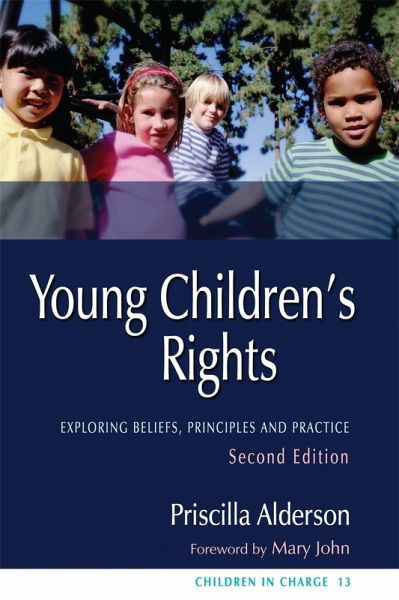
Young Children's Rights (eBook, ePUB Enhanced)
Exploring Beliefs, Principles and Practice Second Edition
Versandkostenfrei!
Sofort per Download lieferbar
28,95 €
inkl. MwSt.
Weitere Ausgaben:

PAYBACK Punkte
14 °P sammeln!
Published in association with Save the ChildrenPriscilla Alderson examines the often overlooked issue of the rights of young children, starting with the question of how the 1989 UN Convention on the Rights of the Child applies to the youngest children, from birth to eight years of age. The question of finding a balance between young children's rights to protection, to provision (resources and services) and to participation (expressing their views, being responsible) is discussed. The author suggests that, in the belief we are looking after their best interests, we have become overprotective of...
Published in association with Save the Children
Priscilla Alderson examines the often overlooked issue of the rights of young children, starting with the question of how the 1989 UN Convention on the Rights of the Child applies to the youngest children, from birth to eight years of age. The question of finding a balance between young children's rights to protection, to provision (resources and services) and to participation (expressing their views, being responsible) is discussed. The author suggests that, in the belief we are looking after their best interests, we have become overprotective of children and deny them the freedom to be expressive, creative and active, and that improving the way adults and children communicate is the best way of redressing that balance.
This second edition has been updated and expanded to include the relevance of UNCRC rights of premature babies, international examples such as the Chinese one-child policy, children's influence on regional policies, and the influence on young children's lives of policies such as Every Child Matters and those of the World Bank, IMF, OECD and UNICEF.
This readable, informative and thought-provoking book is a compelling invitation to rethink our attitudes to young children's rights in the light of new theories, research and practical evidence about children's daily lives. It will be of interest to anyone who works with young children.
Priscilla Alderson examines the often overlooked issue of the rights of young children, starting with the question of how the 1989 UN Convention on the Rights of the Child applies to the youngest children, from birth to eight years of age. The question of finding a balance between young children's rights to protection, to provision (resources and services) and to participation (expressing their views, being responsible) is discussed. The author suggests that, in the belief we are looking after their best interests, we have become overprotective of children and deny them the freedom to be expressive, creative and active, and that improving the way adults and children communicate is the best way of redressing that balance.
This second edition has been updated and expanded to include the relevance of UNCRC rights of premature babies, international examples such as the Chinese one-child policy, children's influence on regional policies, and the influence on young children's lives of policies such as Every Child Matters and those of the World Bank, IMF, OECD and UNICEF.
This readable, informative and thought-provoking book is a compelling invitation to rethink our attitudes to young children's rights in the light of new theories, research and practical evidence about children's daily lives. It will be of interest to anyone who works with young children.
Dieser Download kann aus rechtlichen Gründen nur mit Rechnungsadresse in A, D ausgeliefert werden.




